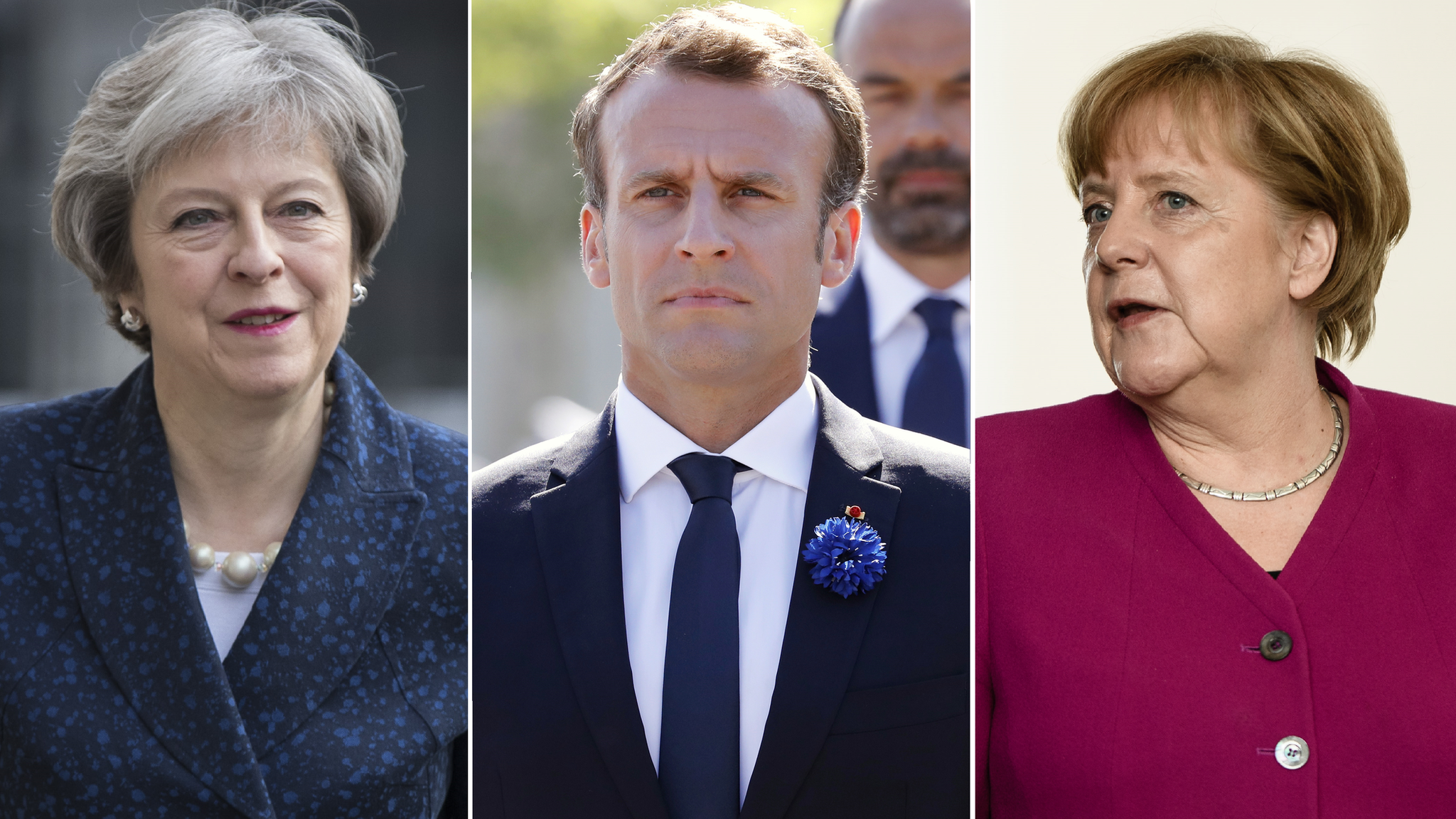Iran-US tensions: What's going on?
- Published
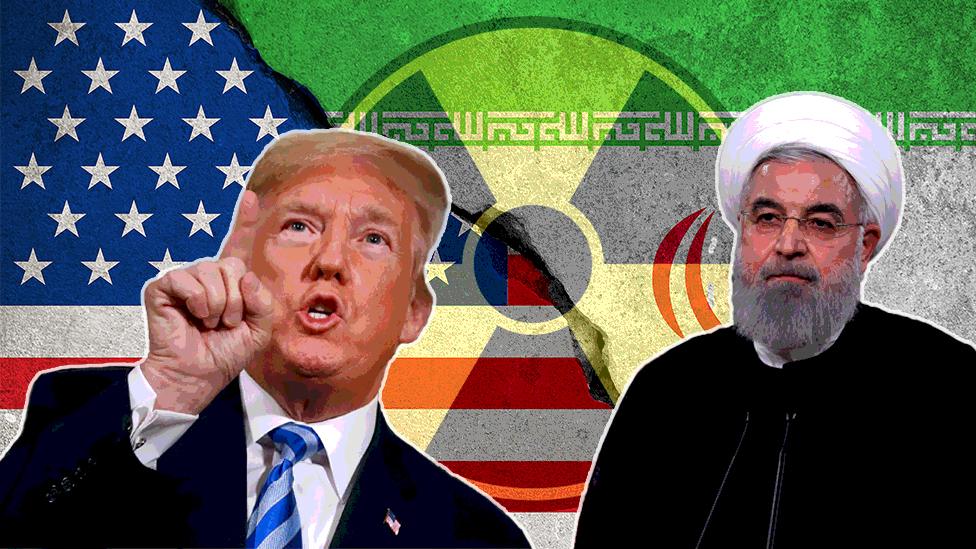
So you've been hearing that Iran and the US aren't exactly getting along.
President Donald Trump was just 10 minutes away from military strikes on the country, and the US has said it will send 1,000 more military troops to the Middle East because of "hostile behaviour" by Iranian forces.
It's accused Iran of attacking two Japanese oil tankers in the Gulf of Oman - something Iran denies.
There's also been tension because Iran says it will break the rules of a nuclear deal it made with world powers in 2015.
How has it got to this?
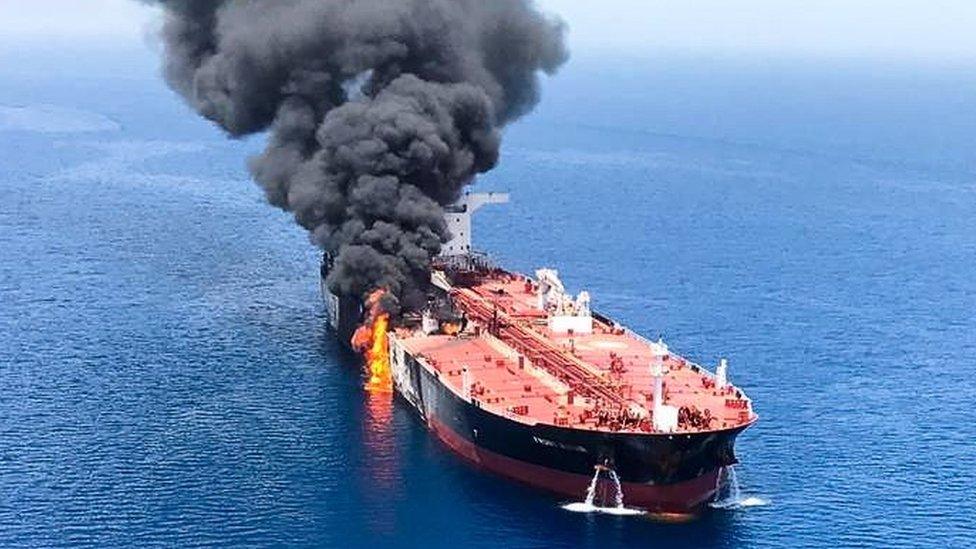
Nuclear reactors are used by countries to create electricity, but Iran was punished and blocked from trading with other countries after suspicions its nuclear programme was being used as cover to create a bomb.
Iran insists its nuclear activities are peaceful - but world powers have been unable to check if this is true or not.
Between 2012 and 2016, it's estimated the trade punishment, known as sanctions, caused Iran to lose out on £118bn.
Then in 2015, Iran signed a deal which allowed it to start trading internationally again.
But President Donald Trump pulled the US out of the deal in 2018 and put sanctions back on Iran.
This had a big impact on the country's economy - hitting oil exports, shipping and banks - meaning it's been difficult for Iranians to buy things, like babies' nappies, from abroad.
Iran has responded by violating some of the deal's commitments, accusing European countries of failing to live up to their promises of protecting Iran's economy from US sanctions.
It's not just about nuclear though.
On Thursday, Iran shot down a US drone, claiming it was in its airspace - which the US military denies. President Trump reportedly approved military strikes against Iran in response, before changing his mind.
What is the Iran nuclear deal?
What is the Iran nuclear deal?
Iran and six world powers - the US, UK, France, China, Russia and Germany - made an agreement in 2015.
These countries were worried that Iran was on its way to creating nuclear weapons.
To trade internationally again, Iran had to cut down its nuclear energy programme.
That included closing down some nuclear facilities or reducing their capacity, as well as allowing international inspectors to check they were keeping to the terms.
Why didn't Donald Trump like the deal?
A timeline of what Trump's said about the Iran deal
President Trump called the deal "one of the worst" the US has entered into.
He said Iran had $100bn (£74bn) to use "as a slush fund for weapons, terror, and oppression" because sanctions had been lifted.
Instead, Mr Trump wants to renegotiate the deal to limit Iran's military plans and its involvement in conflicts in Syria and Yemen.
The US president also doesn't like that parts of the deal have an expiration date - which, in theory, could lead to Iran restarting its nuclear programme later on.
How have other countries reacted?
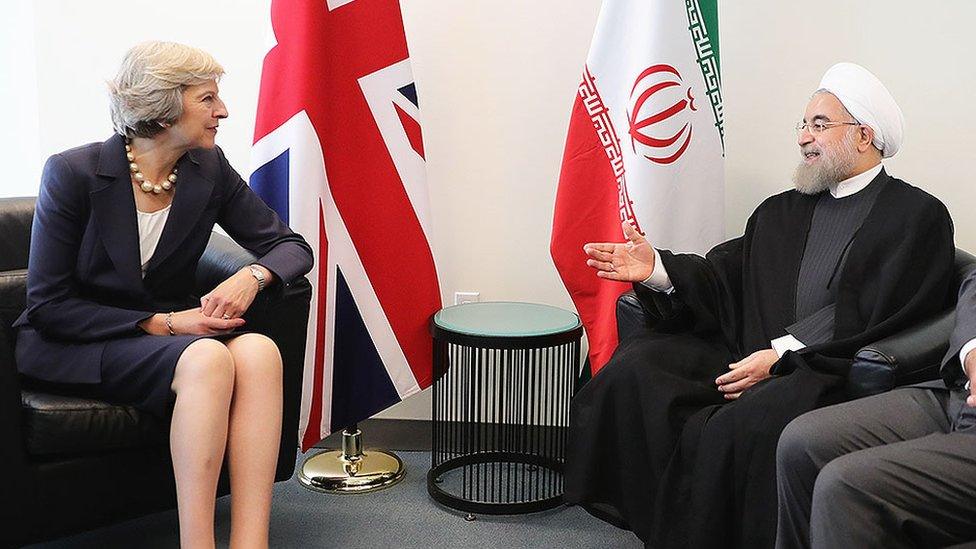
Theresa May met the President of Iran - Hassan Rouhani - in 2016, to discuss global issues
The European countries involved in the deal have always said they still back it, but want Iran to stick to the rules.
If Iran doesn't, the UK, France and Germany have said they'll reimpose their sanctions.
UK Prime Minister Theresa May's spokesman said the UK "would look at all options" if Iran violated the nuclear deal.
Israel's Prime Minister Benjamin Netanyahu has always opposed the deal and says sanctions should be placed on Iran immediately if it breaks the rules.
He warned: "Israel will not allow Iran to get nuclear weaponry."
What happens next?
Why does the Strait of Hormuz matter?
Iran has said that European countries can save the nuclear deal by protecting them from sanctions.
There are still military issues though.
Iran's Major-General Hossein Salami says that while "Iran is not seeking war", the downing of a US drone was "a clear message".
According to US Secretary of State Mike Pompeo, US troops are only in the region to "deter aggression" and "protect American interests".
There could also be consequences for the Middle East region.
Saudi Arabia supports the US and blames Iran for the attack on the oil ships.
The Crown Prince Mohammed bin Salman warned Iran and said that Saudi Arabia "won't hesitate to deal with any threat".


Follow Newsbeat on Instagram, external, Facebook, external, Twitter, external and YouTube, external.
Listen to Newsbeat live at 12:45 and 17:45 weekdays - or listen back here.
- Published21 June 2019
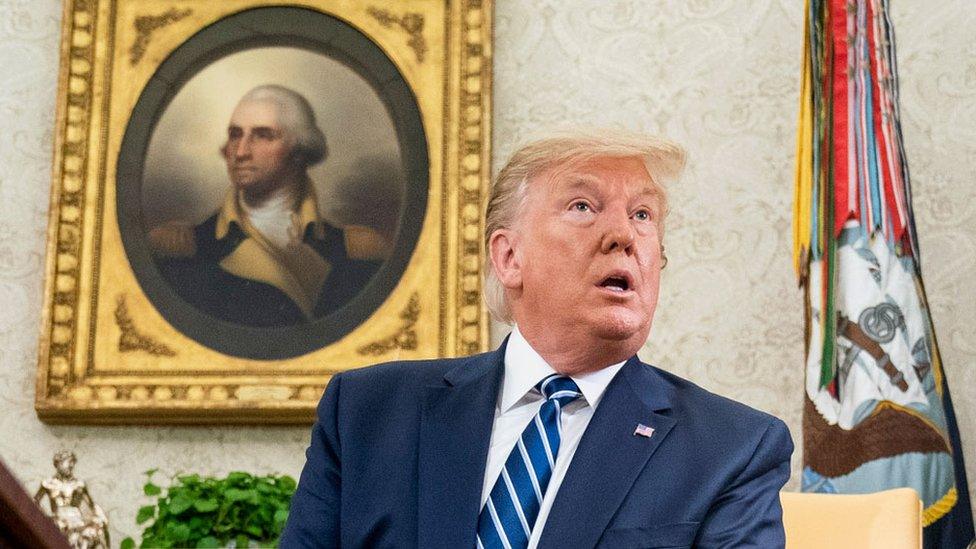
- Published18 June 2019
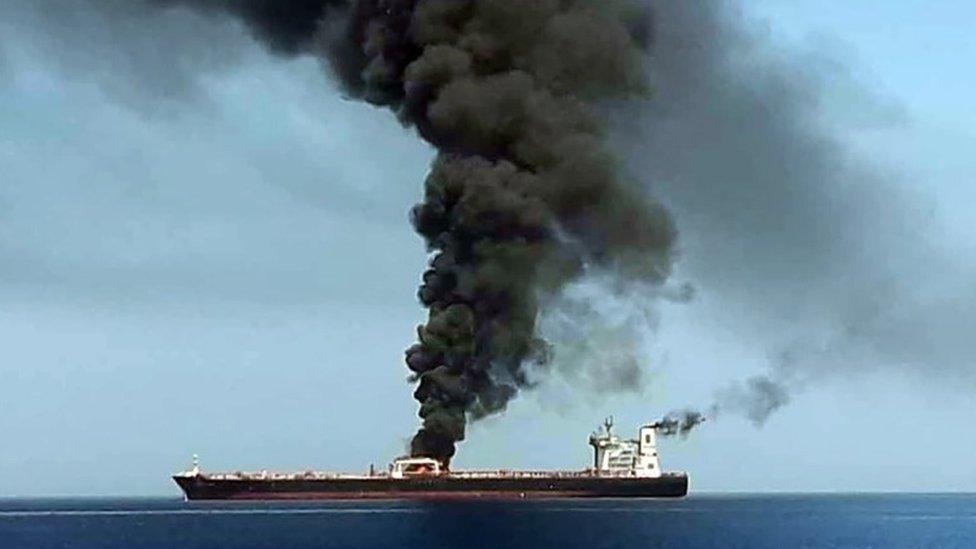
- Published18 June 2019
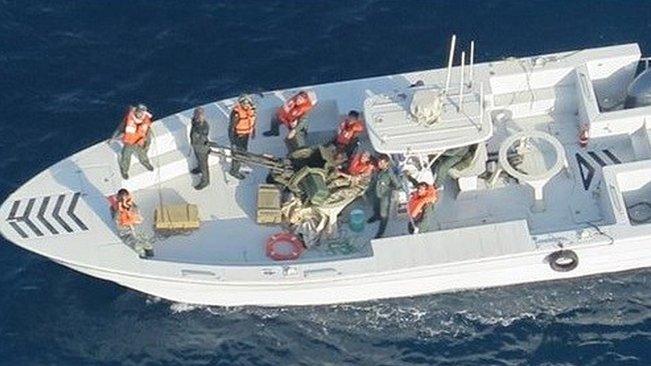
- Published17 June 2019
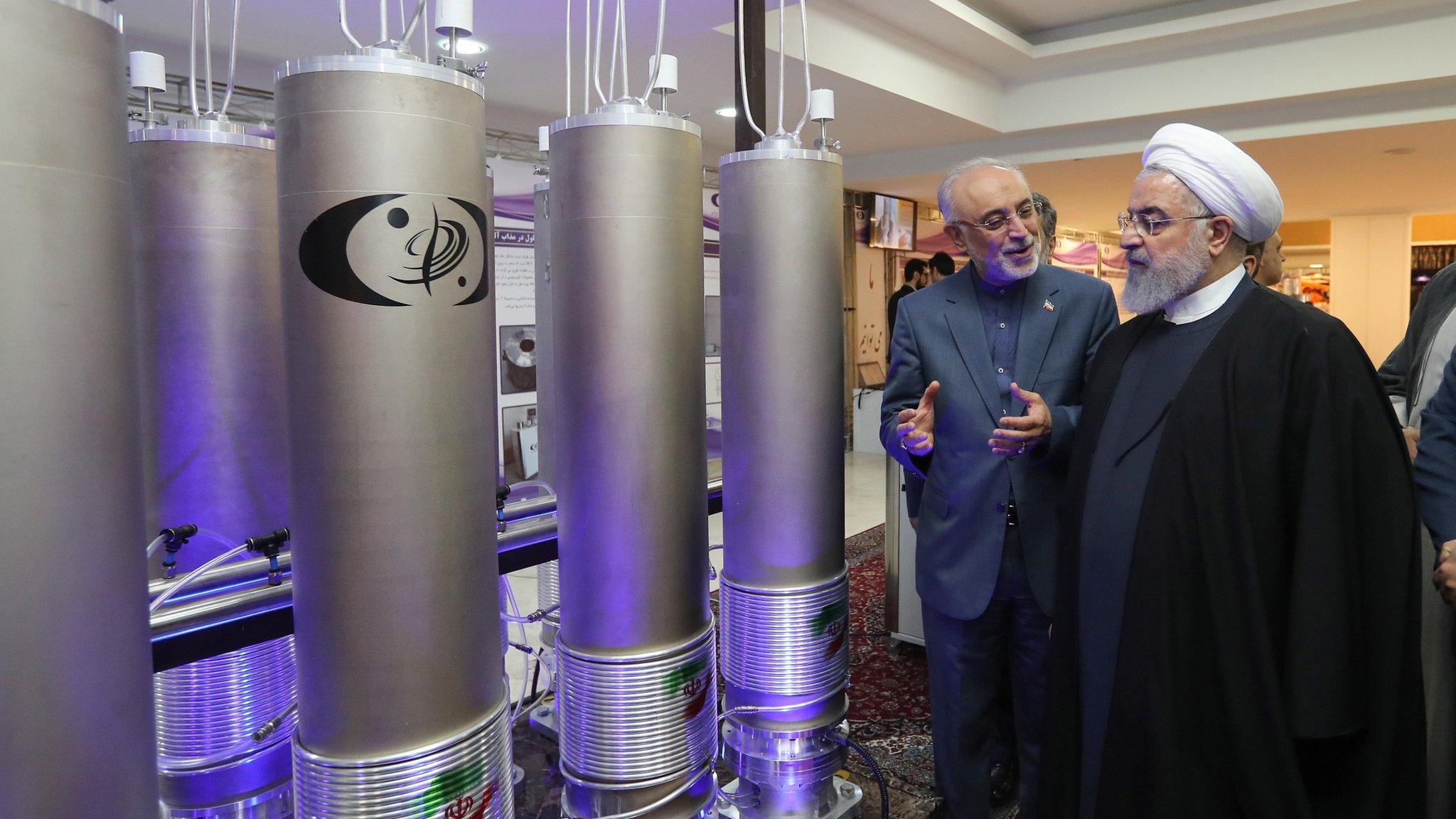
- Published9 May 2018
